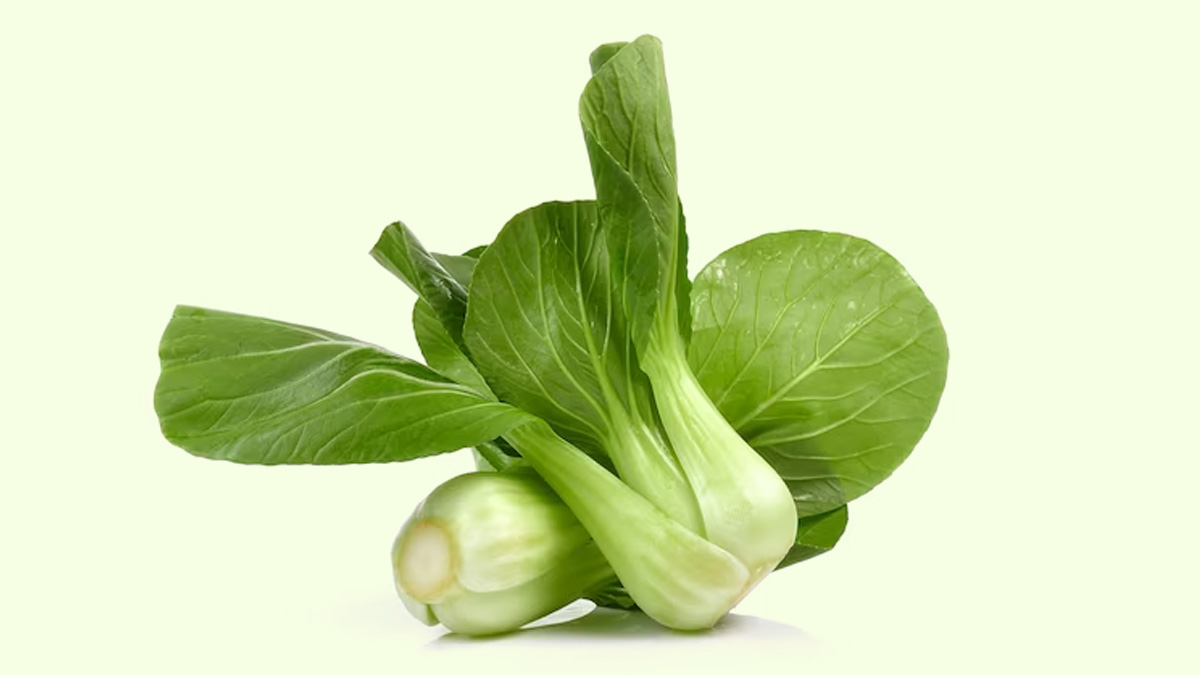
Bok choy, or Chinese cabbage, is a leafy green vegetable with a moderate, agreeable flavour. Aside from its culinary versatility, this cruciferous marvel packs a big nutritional punch and offers numerous health benefits.
Table of Content:-
Pak choi is a plant from the Brassica genus that is native to China. In fact, it is China's most popular brassica vegetable. If you are in Delhi, you can find this vegetable at places like Majnu ka tila. However, it is consumed internationally. Here are five reasons to include bok choy in your diet, ranging from bone strength to heart health.

Antioxidant Properties
According to Journal Molecules, bok choy is also high in antioxidants, which are molecules that shield your cells from oxidative damage, which can cause inflammation and other chronic conditions. Bok choy contains numerous antioxidants, including vitamin C.
Also read: Know Your Plate: Is Vegetable Manchurian A Healthy Treat? Let's Find Out
Rich in Nutrients
Bok choy is a nutritional powerhouse, providing a variety of essential vitamins and minerals. It is particularly high in vitamins A, C, and K, as well as folate, calcium, and iron.
Supports Bone Health
Studies have indicated that low levels of these minerals are connected with collagen decrease and an increased risk of osteoporosis, a disease in which bones weaken and become prone to fracture.

Bok choy contains calcium, crucial for bone health. Additionally, the high vitamin K content contributes to bone mineralization and density.
Boosts Immune Function
An excellent source of vitamin C, bok choy plays a vital role in supporting the immune system. It helps protect against infections and aids in the absorption of iron.
Aids Digestive Health
Bok choy is rich in dietary fiber, promoting digestive health by preventing constipation and supporting a healthy gut microbiome.
Heart-Healthy
According to the National Library of Medicine, bok choy contains the minerals potassium, magnesium, and calcium, which help to naturally manage your blood pressure.
Low Calorie, High Nutrient Density: Bok choy is low in calories but high in nutrients, making it a heart-healthy food. The fiber content also contributes to cardiovascular well-being.

Anti-Inflammatory Effects
The combination of vitamins and phytonutrients in bok choy has anti-inflammatory effects, potentially reducing the risk of chronic inflammatory conditions.
How to Enjoy Bok Choy
Stir-Fries
Incorporate bok choy into stir-fries with a variety of vegetables and protein sources for a nutrient-packed meal.
Salads
Add raw or lightly blanched bok choy to your salads for a crunchy texture and a boost of vitamins and minerals.
Soups and Stews
Enhance the nutritional profile of soups and stews by including chopped bok choy towards the end of the cooking process.
Also read: Know Your Plate: Why To Incorporate Vegetable Pulao In Your Diet
Grilled or Roasted
Grill or roast bok choy with olive oil and your favorite seasonings for a delicious and healthy side dish. While bok choy is generally safe and nutritious, individuals with thyroid concerns should be mindful of its goitrogenic compounds, which can interfere with iodine uptake. Cooking bok choy can help reduce these compounds.
Adding bok choy to your diet is a flavourful and healthful choice. Whether you enjoy it in stir-fries, salads, or soups, bok choy offers a range of nutrients that contribute to overall well-being. As with any dietary changes, it's advisable to consult with a doctor or nutritionists, especially if you have specific health conditions or concerns.
Read Next
Struggling With Fluctuating Blood Pressure? Expert Explains How Kali Mirch (Black Pepper) Can Help
How we keep this article up to date:
We work with experts and keep a close eye on the latest in health and wellness. Whenever there is a new research or helpful information, we update our articles with accurate and useful advice.
Current Version
